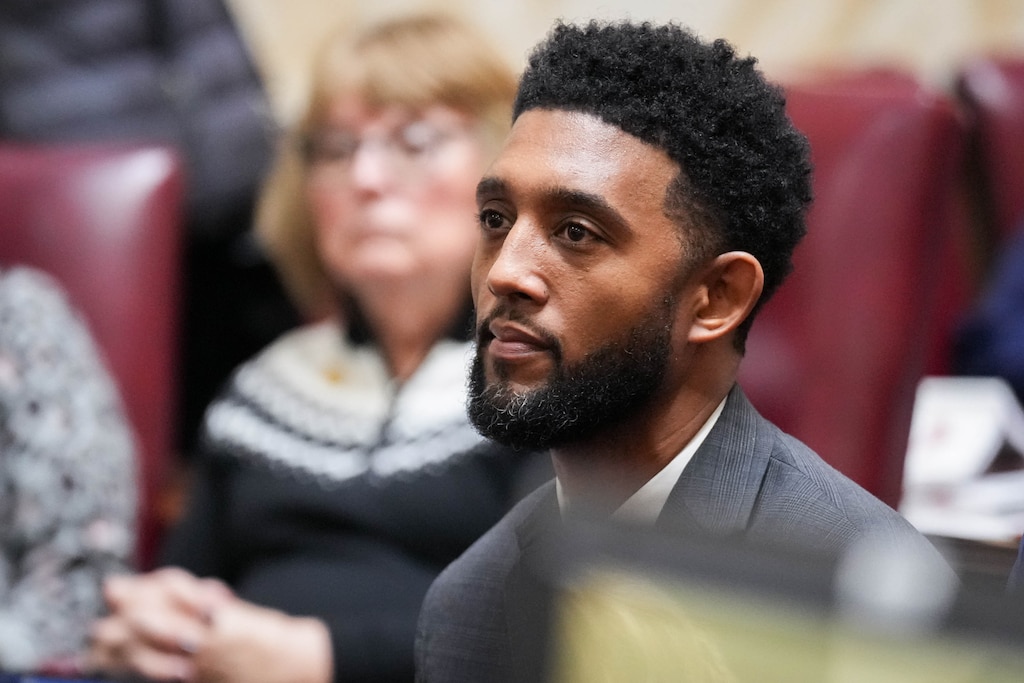Campaign promises made by President Donald Trump to streamline the federal government fell flat Tuesday as Maryland government and nonprofit leaders scrambled to interpret the freeze on Washington’s spending.
State government officials and others who provide social services to low-income Marylanders said they could not access the electronic funding systems essential to their work. That includes money for Medicaid reimbursements, rental assistance, emergency food provisions and other services to cover basic needs.
White House Press Secretary Karoline Leavitt said the funding pause would be limited to programs that don’t align with the Trump administration’s priorities, such as foreign aid assistance, nongovernmental organizations, racial and gender diversity programs and the Green New Deal. It’s designed, Leavitt said, to give the new administration time to carefully review the federal government’s spending.
Late Tuesday, a White House statement said Social Security, Medicare, SNAP, Medicaid and other individual federal assistance programs were explicitly excluded from the pause.
The Baltimore Banner thanks its sponsors. Become one.
Already, the executive order has sparked tension between the White House and at least 22 state attorneys general — including Maryland Attorney General Anthony Brown — who sued the administration over the pause in spending of dollars already greenlit by Congress. A federal judge temporarily halted the funding pause on Tuesday.
Meanwhile, several service providers in Maryland’s nonprofit sector said Tuesday they were not able to access the electronic line of credit and payment management systems they rely on. A Monday memo from Trump’s acting director of the federal Office of Management and Budget stated that any program that provides “direct benefits to Americans” wouldn’t be affected.
Here’s what else we know, and don’t know, about Trump’s executive order.
Who is affected?

Maryland Gov. Wes Moore, in a Tuesday night statement, pointed to the far-reaching consequences of a federal spending break.
The federal government shoulders funding responsibilities in states, cities, municipalities and communities across the country. Moore called Trump’s directive “irresponsible” and a cause of “unnecessary confusion” as the nation races to understand which funding streams are jeopardized.
The Baltimore Banner thanks its sponsors. Become one.
Federal spending, the Democratic governor said, support programs at schools, hospitals and nonprofits. He noted that a disruption in those funds affects everyone, including first responders, older adults, “Marylanders from the western mountains to the Eastern Shore and everywhere in between.”
Families supported by Medicaid, the joint state and federal health program for low-income children and adults, may also see service disruption. Maryland Department of Health spokesman Chase Cook said Tuesday the state could not use the Medicaid Payment Management System for “most of the day,” and even when it regained access, the site didn’t run correctly. The system, when working properly, ensures health care service payment for low-income households.
Medicaid also covers patients who receive care in nursing homes. Joseph DeMattos, a longtime nursing home association CEO and health care policy consultant, said even brief interruptions with payments can create undue stress and harm for those patients.
“In health care,” he said, “uncertainty and insufficient funding threaten the delivery of quality care.”
What’s next for nonprofits?
Nonprofit leaders around Maryland slammed the administration for failing to provide timely guidance Tuesday as questions mounted about their access to funding.
The Baltimore Banner thanks its sponsors. Become one.
Leaders with the Baltimore Mayor’s Office of Homeless Services met Tuesday morning with contractors who provide rental assistance to the city’s homeless population. The federal freeze jeopardizes funds received, which are passed through the city and the organizations before they reach landlords.
Beth Benner, executive director of the Women’s Housing Coalition, said city officials assured her organization and others that February rent payments would be reimbursed, regardless of whether federal money comes through.
What lies beyond February is uncertain, Benner said.
Nonprofit leaders warned that the portal they use to access federal government funding was temporarily offline Tuesday, said Bill Wells, executive director of the Baltimore County-based Community Assistance Network, a nonprofit organization that provides housing, shelter and supplemental food assistance to households facing economic challenges.
CAN could not access the U.S. Department of Housing and Urban Development’s electronic line of credit system Tuesday, throwing staffers into a “scramble” for information.
The Baltimore Banner thanks its sponsors. Become one.
If the interruption becomes a longer-term one, staffers who provide case management and social services to clients won’t be paid. Wells said that could lead to employee furloughs and service disruptions for people who need help to get by.
“These programs are designed to not pull the rug out from under folks,” Wells said. “To take something where funding has already been authorized, where the grant agreements already are in place — to stop that funding is incredibly disruptive."
To make matters worse, another Trump executive order prohibits federal agencies from communicating externally with funding recipients, creating an information blackout at a critical moment, said Kevin Lindamood, president and CEO of the Baltimore-based Health Care for the Homeless.
What’s next?

In addition to the Maryland attorney general’s lawsuit, Mayor Brandon Scott’s administration said it was also “in the process” of suing the Trump administration over the federal funding freeze.
In a rare joint statement endorsed by Scott, Comptroller Bill Henry and all 15 members of the Baltimore City Council, city officials said they are pursuing legal action in an effort to prevent cuts to funding that the city uses for transportation, housing and other services for some of the city’s lowest-income residents.
The Baltimore Banner thanks its sponsors. Become one.
The group blasted the federal directive as politically motivated and designed to “cripple” Democratic-leaning jurisdictions.
Meanwhile, a group of advocacy organizations — including the National Council of Nonprofits, the American Public Health Association, Main Street Alliance and SAGE — filed a lawsuit arguing the freeze violates the First Amendment and the Administrative Procedure Act.
As of late Tuesday, 21 other attorneys general are challenging the order, as well.
This story may be updated.



Comments
Welcome to The Banner's subscriber-only commenting community. Please review our community guidelines.